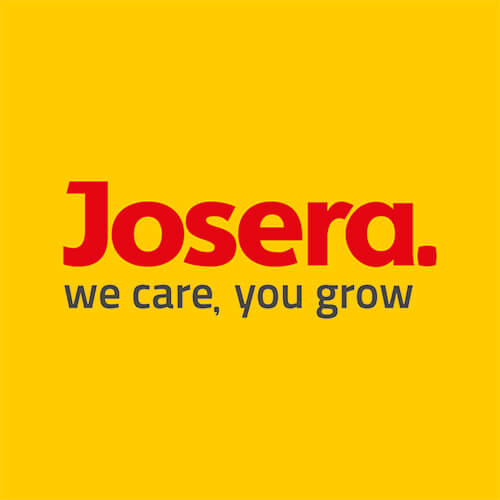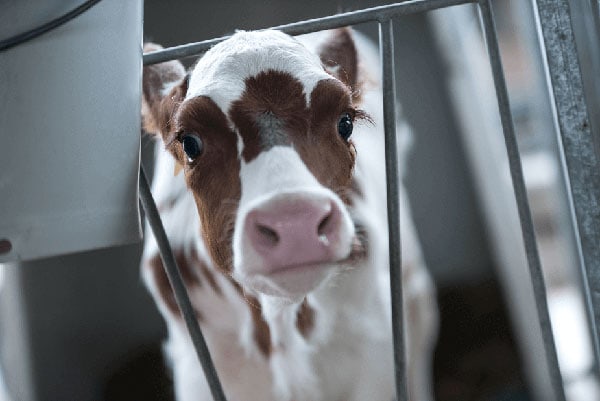IgluStart contains several highly effective special components such as Bacillus licheniformis and Bacillus subtilis (enzyme-forming microorganisms) and resorption boosters for optimum development of the young intestine, and for the best possible formation and development of digestion. Additional substances that promote a strong immune system (double concentration of immunoglobulins, beta-carotene …) constitute important elements as well.
Immunoglobulins are proteins that play an important role in the immune system for protection against pathogens. These antibodies combine with the antigens (substances foreign to the body). Since the surface structure of the immunoglobulins corresponds to that of the intestinal mucosa, antigens normally dock on it.
The antibody/antigen complex is naturally eliminated by the animal. Immunoglobulins are especially important in the first few weeks of life, when the own immune system is not yet fully developed, and in phases with high pathogen pressure.
First put one-third of the planned liquid feed volume into the mixing container in the form of warm water at 45 to 50° C. The water temperature should be chosen according to the temperature of the milk replacer powder and the heat losses before feeding (attention: water temperatures higher than 50° C can damage the vitamins and lactic acid bacteria). Now add the required amount of powder and stir thoroughly. Finally, add water to make the required liquid feed volume. Make sure that the temperature of the liquid feed does not drop below 40° C.
The standard recommendation is 125 g per litre of liquid feed. This corresponds to 140 g per litre of water or a milk replacer to water ratio of 1:8.
IgluStart is mixed at 140 g per litre of liquid feed, which corresponds to 160 g per litre of water or a milk replacer to water ratio of 1:7.
For very intensive rearing, the concentration of the liquid diet can be increased up to 160 g per litre of liquid feed (milk replacer to water ratio < 1:6). Free access to fresh water at all times is required in this case.
For automatic calf feeders, the water temperature should be set to 43 – 45° C and the dosage to 140 g/litre.
Yes, the JOSERA milk replacers offer increased protection against diarrhoea. Thanks to their balanced composition and the CalfCare functional package, they effectively prevent diarrhoea. Probiotics and prebiotics help here as well.
Important: Use the milk replacers according to the JOSERA recommendations (age, preparation). Always keep in mind that milk replacers are feedstuffs and not pharmaceutical products. Their maximum effectiveness can only be realised when the calf is at the centre of a functioning animal rearing concept that meets the calf’s requirements. Housing, hygiene and care to meet the needs of the animals are of crucial importance here.
Smaller quantities should be offered fresh several times a day, starting as early as possible (from the first week), and the volume of feed uptake should be monitored. Naturally, a supply of drinking water has to be provided around the clock. In this phase, JOSERA recommends its own highly digestible “Kälberkost” meal
Lactic acid bacteria are microorganisms that break down carbohydrates into lactic acid. In the digestive tract of calves, they assume a protection function for natural infection prevention: The lactic acid bacteria keep the intestinal microflora balanced and maintain a natural pH level. The healthier the intestinal flora, the more difficult it is for pathogens to establish themselves in the intestine.
Probiotics are microorganisms supplied to the calf. They form a stable intestinal flora in the digestive tract, suppress pathogens that cause disease and therefore ensure intestinal health. The risk of diarrhoea is shown to be reduced.
Prebiotics are special nutrients that serve as a food source for beneficial intestinal bacteria, promoting their growth so that pathogens are suppressed. A healthy intestine supports the immune system and therefore improves calf health.
At birth, the calf mainly has enzymes (e.g. rennin/rennet, lactase) designed for the digestion of milk components. Therefore the purposeful development of digestion is very important for the mandatory conversion to plant feed. This is why the JOSERA milk replacers contain the SmartEnergy carbohydrate package (glucose, sucrose, pregelatinised wheat starch, inulin). It promotes enzyme production and, on the whole, supports optimum preparation of the calf for the utilisation of plant feed.
Resorption boosters are special substances that stimulate the development of epithelial tissue and villi growth in young calves. This increases the surface area of the intestine and improves the absorption of nutrients.
The principle is comparable to the effect of short-chain fatty acids to promote the development of villi in the rumen in dairy cows (feeding in preparation for birth).
Scientific studies and comprehensive own investigations revealed that milk replacer raw materials have a very low native trace element content, so that higher quantities need to be supplemented. An adequate supply of trace elements is of special importance for the growth and immune system of calves.
It is required for the growth of skin and mucous membranes, and makes calves less susceptible to digestive, respiratory and infectious diseases by keeping the mucous membranes healthy.
In the first three weeks of life, the calf depends on highly digestible components. The use of milk replacers containing skimmed milk powder is therefore sensible here. Skimmed milk powder contains highly digestible proteins such as casein.
Starting in the fourth week of life, this very expensive component is no longer physiologically essential for the calf, since it needs to be actively switched from milk to plant feed. In order to accomplish this, the enzyme system has to be actively boosted and skimmed milk powder is not helpful here.
Organic acids protect against diarrhoea and stabilise the state of health, since pathogens and bacteria in particular are decimated. The good acceptance of our products is nevertheless given and can be promoted by switching over gradually.
This is ensured through the selection, composition and use of high-quality milk components. Sweet components (e.g. glucose) and flavourings also do their part. This is backed up by our many years of experience, customer satisfaction and very good acceptance by calves.
Natural flavourings such as banana and vanilla are used.
After birth, the calf has no own antibodies since the blood circulation of the dam and foetus are distinctly separated by multiple layers of tissue and antibodies cannot pass from one body to the other. The calf has to ingest the antibodies with the colostrum.
This immunisation through the uptake of immunoglobulins weakens over time, so the body’s own defence mechanisms have to be built up. Especially in the range from the second to the fifth week of life, this means the calf’s immune status is not optimal and can be improved with additional immunoglobulins in GoldenSpezial, IgluStart or Brillant as well as Colostrin.
Our “brown” milk replacers contain locust bean gum, a dietary substance known as an outstanding digestion enhancer. The high fibre content of locust bean gum stabilises the intestine, and uptake is also increased due to the sweet taste. Intestinal health is promoted.
We use linseed (flaxseed) – which has been known since ancient times as a remedy for digestive problems in human nutrition – in the form of linseed extraction meal in our FE-Trank. Linseed contains mucilage which promotes digestion and counteracts inflammation. The slimy consistency is discernible even during mixing and unfolds its full thickening effect in the young animal’s digestive tract. The mucilage has a calming effect on the intestinal epithelium and promotes intestinal peristalsis (gut mobility).

